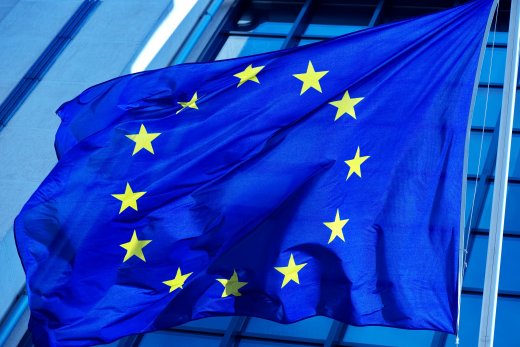New motion against online advertising puts data sovereignty firmly on Europe’s political agenda

Last week, it was confirmed that the European Parliament has voted by a large majority in favour of a motion by MEP Paul Tang (of the Dutch Labour Party) to ban personalised advertisements on the internet. Although this motion is being positioned as a ‘negative choice’ for companies and organisations, the idea behind it is positive because it acknowledges the lack of data sovereignty, which is needed to give people more control over their data. Data sovereignty offers numerous potential benefits for not only citizens and consumers, but also businesses and organisations.
Tang is striving to create legislation to limit the power of the big tech companies, which see personal data as a commodity. “Besides interfering with our privacy, such a revenue model is unhealthy and a blot on the internet landscape,” he stated. His motion is aimed at preventing companies from pushing personalised ads online.
We are not suggesting that targeted advertising is necessarily a bad thing. It can make life easier for consumers and citizens by saving them time and money. However, our view is that those individuals should be made an active part of this. The current model – in which a few big techs hold all the power and are able to put together complete profiles of people, often without their knowledge – has too many downsides, such as the risk of manipulation. Instead, people must have self-determination over their data and must receive some kind of reward or compensation for providing access to it – and that is currently not the case.
At INNOPAY, we believe that businesses and organisations should see this pushback from the political arena as an opportunity to accelerate the shift towards data sovereignty and tilt the data benefit balance back in the right direction, i.e. in favour of citizens and consumers.
To meet the need for more targeted messages, automatically generated personalised advertisements should be replaced by a soft infrastructure for data sharing within which people have control of their data and can express their needs or intents. The soft infrastructure would provide the framework for access to data based on clear agreements on how that data may be shared and for what purposes. This would form the basis for the development of innovative and much more transparent business models in new markets, just like Paul Tang envisions.
While the current discussion about data sovereignty revolves around online advertisements, the issue actually extends beyond advertising alone. A data-sharing infrastructure based on the principles of data sovereignty also offers benefits in other sectors in which data empowerment is vital for the future of transactions and the data economy. In fact, there are already real-life examples of this in various sectors, e.g. consumers joining forces in the energy market to get a better deal collectively, or companies sharing their data while retaining control over it.
Are you interested in finding out how to start implementing data sovereignty in your organisation right now? Take a look at our 7 steps towards giving your customers control over their data.




